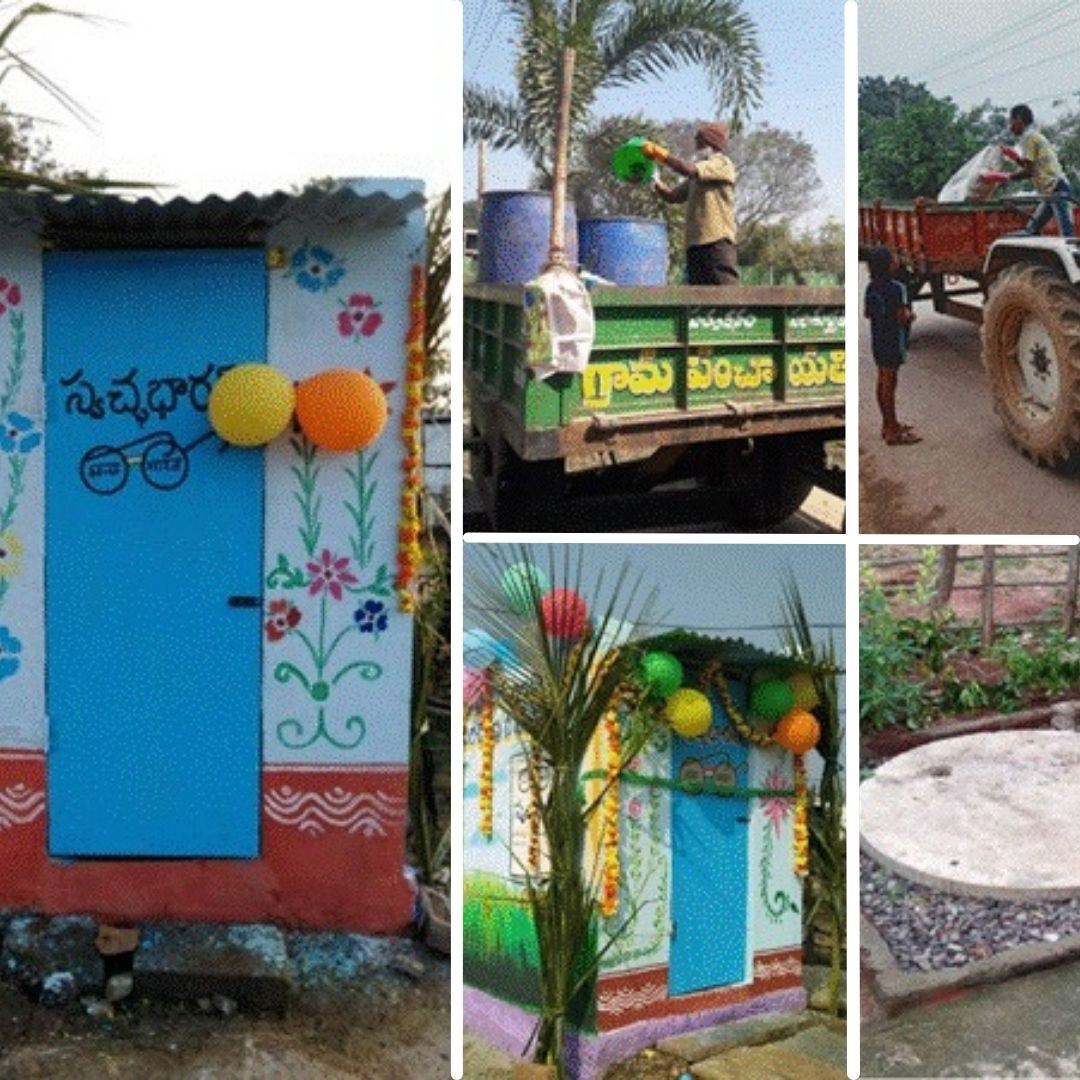
Image Credits: PIB
After Becoming Open Defecation Free, This Telangana District Now Sets Benchmark In Waste Management
Writer: Tashafi Nazir
For most people, journalism sounds hectic and chaotic. For her, it's a passion she has been chasing for years. With an extensive media background, Tashafi believes in putting efforts on presenting a simple incident in the most interesting way.
Telangana, 11 Feb 2022 12:15 PM GMT
Editor : Snehadri Sarkar |
While he is a massive sports fanatic, his interest also lies in mainstream news and nitpicking trending and less talked about everyday issues.
Creatives : Tashafi Nazir
For most people, journalism sounds hectic and chaotic. For her, it's a passion she has been chasing for years. With an extensive media background, Tashafi believes in putting efforts on presenting a simple incident in the most interesting way.
Having been declared Open Defecation Free (ODF) in August 2019, Bhadradri Kothagudem district commenced various activities to spread awareness and ensured visible cleanliness with the support of villagers. Under the Swachh Bharat Mission Grameen, the district ensured no one was left behind by constructing toilets for new emerging households.
With an aim to build a clean and green district while ensuring to save its people from pollution and related health issues, Telangana's aspirational district Bhadradri Kothagudem set an example when it constructed 88,416 individual household toilets under the Swachh Bharat Mission Grameen in 2019. Now, the district is all geared up to establish solid and liquid waste management (SLWM) assets.
After declaring it Open Defecation Free (ODF) in August 2019, Bhadradri Kothagudem had commenced various activities to spread awareness and ensured visible cleanliness with the support of villagers. Under the Swachh Bharat Mission Grameen, the district ensured no one was left behind by constructing toilets for new emerging households.
Solid Waste Management
All the 479 Gram Panchayats in the 22 Mandals have now established solid waste management sheds and procured tractors for waste collection. In addition, training was held for field functionaries to ensure the functioning of these sheds. The district has also established a five-stage SWM sanitation service chain at the panchayat level, consisting of source segregation, collection, transportation, processing and safe disposal, according to PIB.
However, the process of ensuring source segregation and forward linkages of dry waste was not without resistance or challenges. It was successfully addressed with the WASH Institute (WASH-I), which has been supported the district in creating awareness among beneficiaries for source segregation and conducting capacity-building sessions.
To date, as many as 168-gram panchayats have achieved 100 per cent source segregation, and the source segregation is around 70 per cent in most of them. To achieve 100 per cent source segregation in all the GPs, awareness activities are held every week through GP functionaries and WASH-I.
Plastic Waste Management
On September 5, 2019, the District Collector and the DRDA Chairman jointly issued a complete ban on single-use plastics and inaugurated a programme to produce cloth bags as alternatives. In addition, all government offices were also asked to create awareness about the plastic ban.
Many activities to build awareness and curb its usage were taken up to make a plastic-free district. The support of Self Help Group (SHG) members was enlisted to conduct door-to-door campaigns to successfully mobilise massive community participation to collect, segregate and dispose of single-use plastic. They also organised awareness meetings, workshops, rallies across the district and distributed cloth bags to the public.
Regarding the processing of recyclable waste, the gram panchayats have tied up with local scrap dealers to facilitate the safe disposal of dry waste. The process of forwarding linkages is being scaled up at the district level, towards partnering with waste management service providers. Currently, the Indian Conglomerate Company (ITC) has set up four Dry Resource Collection Centres (DRCCs) in Kothagudem, Manuguru, Palvancha and Yellandu, which take the load from both the urban and rural areas. All gram panchayats have been instructed to transport their plastic waste to their nearest DRCC. Also, steps toward quantification and characterisation of waste are taken up with the support of WASH-I, so that forward linkages of non-recyclable waste are possible.
Liquid Waste Management
When it comes to Liquid Waste Management, considerable focus is given to individual magic soak pits at the household level in most gram panchayats. Greywater is also disposed of through drains constructed under MGNREGS, leading to community soak pits that effectively treat wastewater and help recharge the groundwater table. The district administration has instructed all the gram panchayats to take up soak pits, both as individuals and community, in a mission model where six GPs in every Mandal are to be saturated with LWM activities by the end of March 2022. So far, 32,791 individual soak pits and 1,331 community soak pits have been constructed.
ODF Plus Achievements
So far, the district has declared all its 479 GPs as ODF Plus Aspiring, ensuring toilet access to all households and institutions, and constructing the required SWM assets. The area is creating awareness on ODF plus activities by ensuring that all the GPs have IEC messages, remarkably placed in public places. Besides, all GPs in the district have been directed to attain ODF Plus model status by achieving 100 per cent LWM coverage.
Not only GPs being targeted to get ODF Plus model status, the administration also plans to establish DRCCs and Faecal Sludge Treatment Plants to ensure ODF Plus status for the whole district. It has proposed four FSTPs in four ULBs, which will also cater to rural HHs with septic tanks. This will ensure the safe disposal of faecal sludge across the district.
Also Read: These Two Activities Could Help Prevent Mental Health Disorders Among Children, Finds Study
 All section
All section














